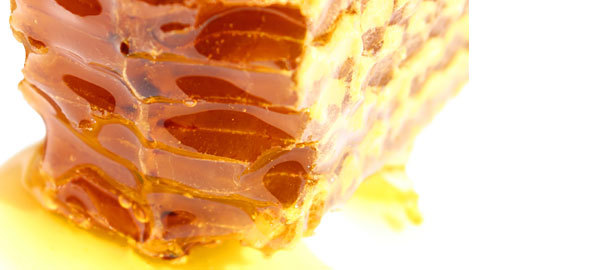Our article this week is kindly provided by Dr Peter Mansfield. Peter has spent more than forty years in the field of health, both as a G.P. in London and Lincolnshire, and running his own health and nutrition service. As Peter states “My great passion was, and remains, the importance of good nutrition as the starting point for health”. Peter has provided below what he terms ‘A baker’s dozen of tips for sustained health – My fifty year learning curve!’
1. Eat food as close to its natural condition as possible
That means whole, fresh, raw when appropriate, organic or bio-dynamic in quality. By the eighties, preference for wholemeal (or at least brown) bread had changed the overall colour of bakers’ shop windows. Avoidance of refined, starchy food was my first and largest step towards lasting health.
2. Drink water as pure as possible
We bought one of the early reverse osmosis purifiers, when they were still very expensive. We never regretted it. They are now much cheaper and readily affordable. Dissolve a pinch of vitamin C powder in pure water to drink it negatively charged (see item 3). There is no merit in drinking hard water (see item 9). The hardness minerals in water, and in purified mineral supplements, are the ones that chalk up your arteries and body cavities.
3. Breathe air as fresh as possible
And breathe really deeply at least once a day. Learn to use your diaphragm for breathing, more than your ribs. Really filling your lungs makes sure that every air cell gets used each day – no chance for any to silt up and stop working. Fresh air is turbulent, especially downwind of the sea or mountains – visit both often. The key to freshness is negative electrical charge. Ionise the air in your bedroom or workplace to freshen it artificially. Earth your bed to drain positive charge away from your body overnight.
4. Be physically active
In a way you enjoy, for at least 30 minutes three times weekly. If you hurt yourself consult an osteopath, who knows far more on this subject than a doctor.
5. Be mentally active daily, doing new things
In a word, create. In particular, think laterally and outside the box. Don’t be afraid to be different, but maybe take care whom you tell.
6. Live to some purpose
Yours, not anybody else’s.
7. Avoid Sugar
And eat as little carbohydrate (starchy) food as possible. It’s mainly fuel, and very few of us toil hard enough for long enough to need any.
8. Nutritional supplements should resemble food as closely as possible
In particular, vitamin C and minerals. Your body recognises, welcomes and depends upon the unrefined flesh of other creatures, and with few exceptions (mainly the ingredients of sea-water) is hostile to soil and its raw or purified components.
9. Consume as much antioxidant food as possible
Vividly coloured foods are capable of trapping mischievous fragments of chemistry – free radicals – and making them harmless. Free radicals arise from pollutant damage, radiation and fierce sunlight on untanned skin. Left to themselves they will ricochet around your body, smashing off showers of new free radicals, until they are stopped. You can hardly eat too much of the foods capable of stopping them. Most of them occur in vividly-coloured vegetables and fruit.
10. Assume you lack minerals because your food does
in particular, most people need more zinc and magnesium. Rendered as food tissue, of course (see item 8).
11. Avoid fluoride
It is toxic even in low dosage, interfering comprehensively with the machinery of your body. Putting it in your water or toothpaste is good only for the companies that need to get rid of it (as a by-product of mining and manufacture – coal, ceramics, aluminium, nuclear isotope refining, scrubbings from power station chimney-stacks). If you live in an area provided with fluoridated water, you probably consume more fluoride even than the Government thinks is good for you, which is already far too much.
12. Be economical with vaccination and immunisation
If in any doubt, postpone. Vaccines are, above all, a marketing opportunity for their manufacturers. Public health officials act as if employed by them. Far better to tune up your immune system with all the nourishment it needs.

13. Propolis
Propolis from beehives, is by far nature’s best antiseptic antibiotic. Beehives are more sanitary than operating theatres. Use propolis routinely to ward off other people’s colds, especially on trains and airliners. Try it when your doctor’s antibiotic prescription fails.
Since 1979 Dr Peter Mansfield’s main mission in life has been to “devise a way in which people of ordinary means could foster their health without having to wait until they become ill”. He was in general practice in East London and then Lincolnshire and in1996 he was ready to retire early from medical practice and devote himself to “Good HealthKeeping” .
In a previous article with the Guardian it was noted that “His great passion was, and remains, the importance of good nutrition and this includes making his own bread and growing his own organic vegetables. He worried before it was fashionable about “toxic load” and the dramatic rise in allergies among children, and did much practical work exploring the link between them and food additives.”
With many thanks to Peter for sharing his ‘baker’s dozen’ with us. If you have any questions regarding this article, any of the health topics raised, or any other health matters please do contact me (Amanda) by phone or email at any time.
Amanda Williams, Cytoplan
amanda@cytoplan.co.uk, 01684 310099
Last updated on 2nd February 2016 by cytoffice



How do you ionise your bedroom?
Hi Val, thanks for your comment on our blog. You would need to buy an air ioniser – if you search on the internet you will find a number of products available on the market. Thanks, Clare.